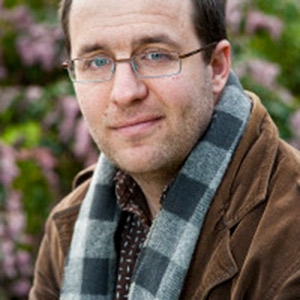Making the twain meet
Research news
Not one to shy from challenges, Deakin philosophy Professor Jack Reynolds is bent on no less than narrowing the analytical – continental philosophy divide that has loomed over the discipline for well over a century.
While many philosophers might believe this is a theoretical impossibility, Professor Reynolds argues that common ground can be found between the two streams that took divergent paths early in the 20th Century - phenomenology and naturalism.
He is currently writing a book for Routledge on the topic, entitled “Phenomenology, Naturalism and Empirical Science: a Hybrid and Heretical Proposal,” forthcoming in 2016.
The philosophical divide has tended to follow geographical lines, with the Anglo-American analysts from Oxford and Cambridge - led by philosophers such as Bertrand Russell - focussing on logical/scientific analysis, and the European continental philosophers, such as Jacques Derrida, taking a broader view of existence in its socio-political dimension, and producing such influential approaches as post-structuralism, phenomenology, and critical theory.
Phenomenology aims to describe the basic structures of experience without presupposing any particular theories (including science).
Prof Reynolds explained that phenomenologists have drawn on science, but also sought to constrain “the reach and ambition of science,” with Martin Heidegger infamously suggesting that “science does not think.”
“While empirical science underpins much of modern life, the phenomenologists believe that this success should be bracketed in the study of philosophy,” he said.
“The modes of reasoning of empirical science - reduction, causal explanation, inference to the best explanation, endorsed by the philosophical naturalist - are generally held to be non-phenomenological.
“The naturalists say phenomenology has a theoretical trajectory with no agreed method, results or way of engaging with science. This perspective suggests that phenomenology can’t be a potential research program in the area of empirical sciences and that it is an “untenable first philosophy.”
However, Professor Reynolds believes that it is time to update our understanding of phenomenology.
“I believe we can naturalise phenomenology – without sacrificing its soul,” he said.
“I am seeking to reorient phenomenology as compatible with liberal naturalism and committed to results continuity with relevant sciences, at least in the long-term”
Since he discovered philosophy at high school, Jack Reynolds has been interested in both streams, but he has been particularly drawn to continental philosophers, such as Derrida, Maurice Merleau-Ponty and Jean Paul Sartre.
“My book argues for a hybrid account of phenomenology and naturalism that is able to simultaneously respect both approaches, without resorting to a methodological separatism that seeks to preserve an autonomous space for phenomenological and empirical science, such that the twain do not meet,” he said.
He is convinced that taking such ideas forward is essential to improving our understanding of the world.
“Historically, almost all disciplines have sprung from philosophy, from biology, to psychology, to metaphysics, and to many other sciences,” he said.
“Philosophy asks the critical questions about how we can be happier and how society can be more equal. It provides a lens to scrutinise modern life.
“As Merleau-Ponty said, philosophy is everywhere and nowhere.”
Inaugural Max Charlesworth Lecture
“Hannah Arendt and Paul Ricoeur, Human Existence and Love of this World.”
Professor Morny Joy, from the Department of Religious Studies at the University of Calgary, will deliver the inaugural biennial Max Charlesworth Lecture at 10am, July 14 at the Burwood campus. (Video links will be provided at the Waterfront and Waurn Ponds campuses.)
Prof Max Charlesworth AO (1925-2014) was one of Australia’s most famous philosophers and Foundation Dean of Deakin’s School of Humanities. He was an outstanding scholar, famed for his pluralist approach and for bringing philosophy to the issues of the day, such as bioethics, Aboriginal religions and the role of the Church in a liberal democracy.
Share this story
 Pursuing an ambitious undertaking - Professor Jack Reynolds.
Pursuing an ambitious undertaking - Professor Jack Reynolds.
